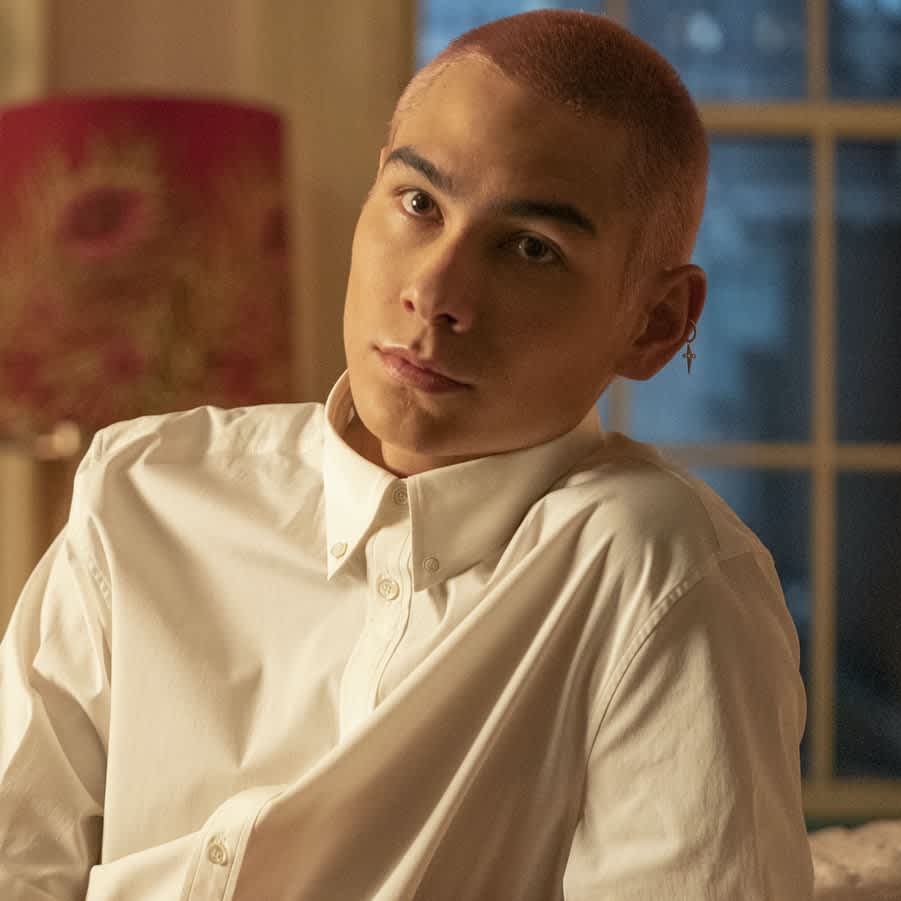Gossip Girl really doesn’t hold back for its midseason finale. Despite a slow start at the beginning of the season, the show really picks up the drama in episode six. While there are some wild breakups and makeups (looking at you, Julien and Obie), one of the biggest moments of the episode is Aki publicly coming out as bisexual. Although, the circumstances that lead to him coming out are pretty heartbreaking.
Throughout this season, we’ve seen Aki come to terms with his sexual identity. After kissing Max, Aki begins to question whether he is gay or bisexual. Though his girlfriend, Audrey, has been supportive in his journey thus far, she eventually does the unimaginable in a heat-of-the-moment conversation with Aki’s father, Rodger Menzies. As Rodger discusses a lawsuit his company faces for creating a “pervasive antigay workplace environment,” he makes remarks that leave Aki visibly uncomfortable, prompting him to suddenly exit the room during the conversation. As a result, Audrey lashes out at Rodger for his insensitive remarks, and she inadvertently outs Aki in the process.
This scene in particular is one that creator Joshua Safran and his fellow writers really talked a lot about to make sure they handled it properly. “There’s a lot of queer writers in the writers room, myself included, and we talked about our coming out journeys,” Safran told Teen Vogue. “Audrey is so exhausted and drained by her experience in the hospital, she’s not even thinking when she stands up. She believes she’s standing up for a boyfriend, and then realises that she’s outed him. We talked a lot about that, about how like, oftentimes, the closest friend you tell early on, who becomes your [confidant] about that, then takes over a version of ownership or more pride in you, and wanting you to be happy and healthy and in the world. And it’s not even a thought.”
What’s even more disheartening is that later in the episode, Aki’s own father outs him to the press in order to save his own reputation when a reporter inquires about his company showing bias against LGBTQ+ members. He retaliates by asking the reporter, “How could I or my company be accused of being homophobic when my own son Aki here, who I love very, very much, is gay himself?,” to which Aki quickly jumps in to clarify his bisexuality. While Aki completely owns his bisexuality in that moment, he is also robbed of the opportunity to come out on his own terms.
Aki’s journey shows that the struggles of coming out as LGBTQ+ extend beyond money and status. It’s also one of the biggest ways the reboot is recontextualising the narrative of privilege and wealth in the original series. Unlike the original, which shows the characters constantly reveling in their wealth and status without remorse for how it affects others, the characters on the reboot are much more conscious of their privilege. In this episode in particular, we see Obie defy his privileged roots as he participates in a protest outside his mother’s own real estate property. The show constantly navigates the balance of incorporating all the drama of the Upper East Side while also making the characters somewhat relatable at the same time.
Having more of that LGBTQ+ representation is something Safran already plans on doing when part two returns in November. “Moving forward, I think now that it’s been named, and it’s in the world, I think Aki is going to come more and more into his own power as a bisexual man,” Safran said to Teen Vogue. “I wouldn’t say he was closeted, but when you’re reckoning with it and dealing with it, like your biggest fear is coming out because you’re not ready yet, or you don’t know what it is or what it means. And then once you start to come out, you know, it gets better. Sometimes it doesn’t, which we all know. But a lot of the times, naming it, owning it, being able to be it and not be afraid of it can give you strength. Aki’s journey is one of strength.” Hopefully Aki’s storyline in part two will be another step forward for more positive and accurate bisexual representation on television.

